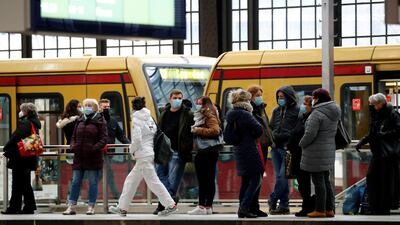Germany may extend its lockdown into March to tackle the spread of a more contagious variant of the virus.
Any easing of restrictions at some schools or daycare centres will depend on local infection rates, German media reported on Saturday.
The highly infectious mutation first found in England has spread to 13 of the 16 federal states and is expected to become the dominant strain.
Germany’s infection rate per 100,000 people has fallen to 79.9, but health officials want a rate below 50 before lockdown restrictions can be lifted.
“The situation is far from under control,” said Prof Lothar Wieler, president of the Robert Koch Institute.
Health Minister Jens Spahn said: “The virus is not tired yet. On the contrary, it has just received another boost.”
German and French leaders on Friday defended the EU against accusations it has mishandled delivering vaccines to member states.
Chancellor Angela Merkel conceded that “production capacities are not as large as we had imagined”.
On Saturday, German Finance Minister Olaf Scholz said more Covid vaccines should have been ordered in 2020.
“I’m angry about some of the decisions that were taken last year,” Mr Scholz said. “I think there had been the opportunity to order more of the vaccines.”
EU countries have so far given first doses to about 4 per cent of their populations, compared with 11 per cent for the US and almost 17 per cent for Britain.
In an opinion piece to run in Sunday's Frankfurter Allgemeine Sonntagszeitung, European Commission President Ursula von der Leyen said it was misleading to suggest that sealing vaccine contracts earlier would have hastened delivery.
“The bottleneck lies elsewhere. Producing a new vaccine is an incredibly complex business,” she wrote. “Among the hundreds of components needed, important ingredients are in short supply worldwide”.












